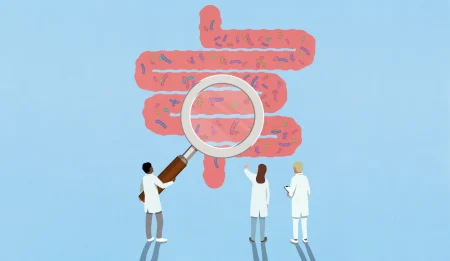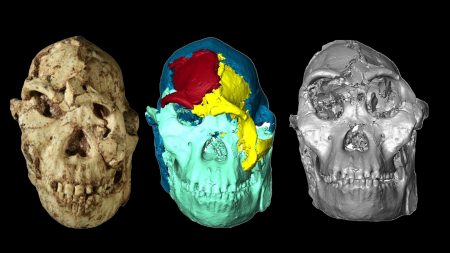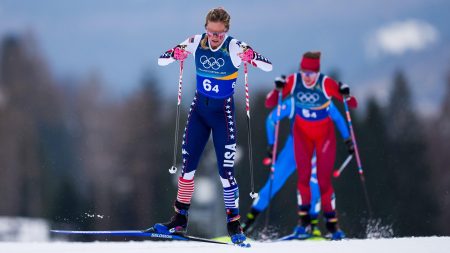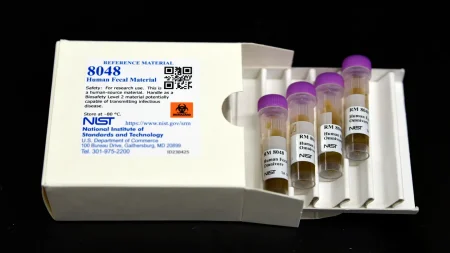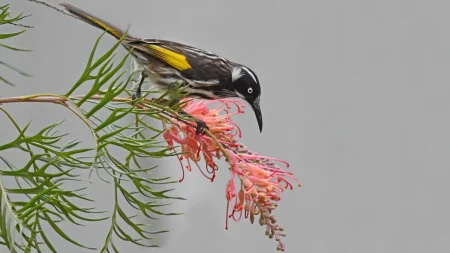McKenzie Prillaman, a Washington, D.C.-based science and health journalist, possesses a compelling blend of scientific acumen and communication expertise. Her academic background, encompassing a bachelor’s degree in neuroscience from the prestigious University of Virginia and a master’s degree in science communication from the University of California, Santa Cruz, provides a robust foundation for her work in translating complex scientific concepts into accessible and engaging narratives. This interdisciplinary training equips her with the ability to bridge the gap between the scientific community and the public, fostering a greater understanding of intricate scientific discoveries and their implications for society. Her experience as the spring 2023 intern at Science News further honed her journalistic skills, providing valuable real-world experience in reporting on cutting-edge scientific advancements.
The University of Virginia, renowned for its strong academic programs, provided Prillaman with a solid grounding in the biological mechanisms underlying human behavior, cognition, and disease. This immersive education in neuroscience likely involved rigorous coursework in areas such as cellular and molecular neuroscience, neuroanatomy, neurophysiology, and behavioral neuroscience. This knowledge base not only enables her to critically evaluate scientific research but also empowers her to accurately convey the nuances of complex neurological processes to a broader audience. Furthermore, her undergraduate education likely fostered critical thinking skills and a meticulous approach to research, essential qualities for a journalist navigating the intricate landscape of scientific information.
Building upon her foundational knowledge in neuroscience, Prillaman pursued a master’s degree in science communication at the University of California, Santa Cruz, a program known for its emphasis on effective science storytelling. This specialized training likely involved coursework in science writing, visual communication, public speaking, and media relations. This interdisciplinary program equips graduates with the skills to tailor scientific information for diverse audiences, ensuring clarity and accuracy while maintaining audience engagement. This understanding of communication strategies allows Prillaman to craft compelling narratives that capture the essence of scientific discoveries and translate complex jargon into easily digestible language for the general public.
The internship at Science News, a reputable publication known for its concise and informative reporting on a wide range of scientific topics, provided Prillaman with invaluable practical experience. This opportunity likely involved contributing to news articles, feature stories, and potentially other forms of media, covering diverse scientific fields. Working within a fast-paced news environment, she would have honed her skills in research, interviewing, fact-checking, and writing under tight deadlines. This experience further solidified her ability to distill complex scientific information into accurate and engaging narratives suitable for a broad readership. The internship also likely provided her with valuable networking opportunities within the scientific journalism community.
Prillaman’s unique combination of scientific expertise and communication skills positions her well to address the growing need for accurate and accessible science reporting in today’s complex media landscape. Her background allows her to navigate the complexities of scientific research, critically evaluate evidence, and present information in a way that resonates with a broad audience. In an era of misinformation and rapidly evolving scientific discoveries, her ability to communicate complex scientific concepts clearly and accurately is a valuable asset. Her commitment to bridging the gap between the scientific community and the public serves to enhance public understanding of science and its implications for society.
As a science and health journalist, Prillaman is poised to make significant contributions to public understanding of complex scientific issues. Her ability to translate intricate research findings into accessible language empowers individuals to make informed decisions about their health and engage in informed discussions about scientific advancements. In a world increasingly reliant on scientific innovation, her work plays a vital role in fostering scientific literacy and promoting evidence-based decision-making. Her commitment to accurate and accessible science communication serves as a bridge between the scientific community and the public, contributing to a more informed and scientifically engaged society.







